Amnesia: A Machine for Pigs
Indie Horror Survivalist Strikes Again
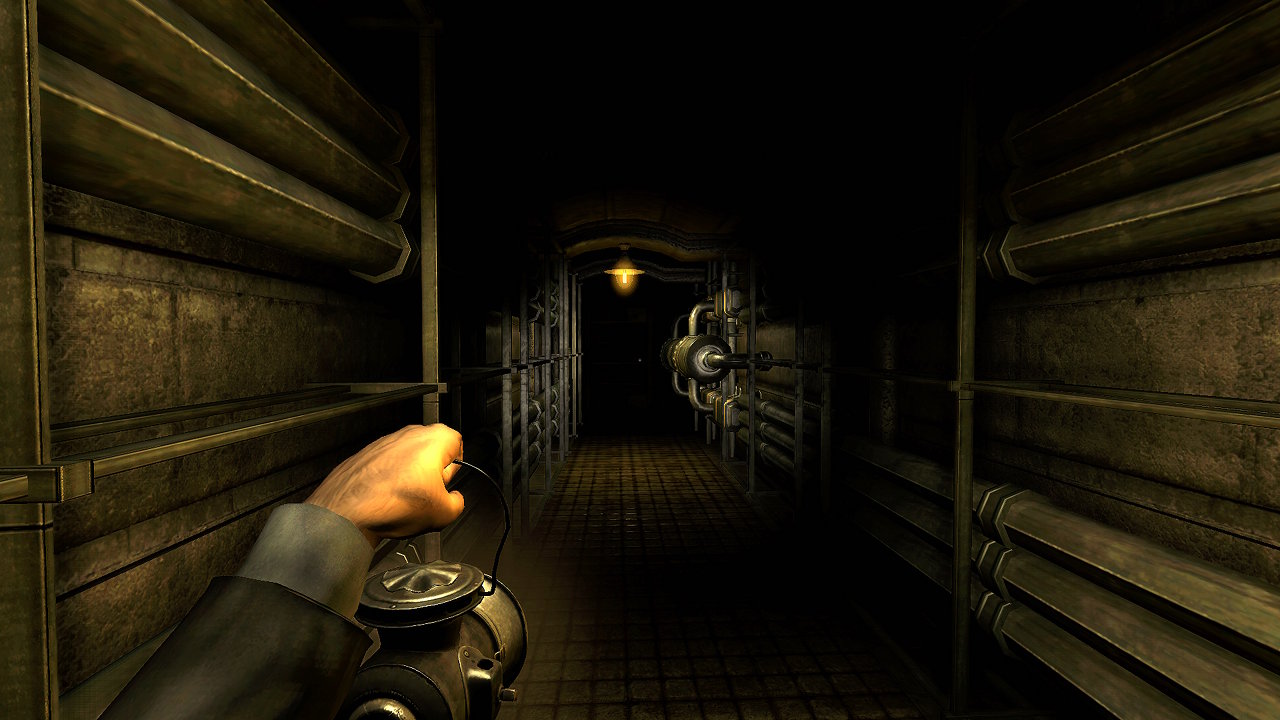
Indie horror survivalist game "Amnesia: A Machine for Pigs" hit the Steam Store last week on Sept. 10. The second installment to the "Amnesia" franchise was highly anticipated by the gaming community and even offered a $4 discount to players who pre-ordered. "Amnesia" was developed by Frictional Games, the same masterminds behind the original title, as well as the "Penumbra" series.
With so many indie cult hits under their belts, they have some pretty big shoes to fill for their newest release. And with the scariest month in the year coming up fast, I couldn’t help but to review “A Machine for Pigs.”
Game Play
“A Machine for Pigs” introduces you into Oswald's foggy state of mind by throwing you into a 19th century bedroom (complete with a caged bed), devoid of lights or human company. The first few moments were spent spinning around the room, unable to completely control Oswald. Although this mechanic was interesting and appropriate for the character, graphical effects like this actually made me queasy, and it wasn’t the only time this happened.
From there, you proceed to gather clues, read letters or memos leftover in desk drawers, follow the pig masks, and pick up the ringing telephone. You have the use of a lantern to help guide you around the incredibly dark house, but you should only use it sparingly. Who knows who you’ll attract if you spill the light all across the house? You can only do so much – interact with a handful of items, pick up pieces of paper, turn on lamps, push boxes, and move story-relevant items around the room. That’s about it, but that’s really all it takes anyway.
One of my biggest problems with the game was the inability to really explore the complex nature of Oswald’s environment. Although the house was complicated and interesting, there weren’t many items you could interact with and too many doors you couldn’t access. Exploration was deceptively linear; you could only explore rooms once you’d passed a certain checkpoint. While this isn’t a bad concept in and of itself, you were essentially limited to two rooms or hallways at a time. As someone who likes exploring in games, even if it means spending more time discovering the intended objectives, this was disappointing.
However, those are my only main issues with the game. The use of telephone messages from unnamed acquaintances, letters hidden on tables and in desk drawers, and clues littered around each room (some in the form of pig masks) don’t stop being interesting as the storyline progresses. Although the use of pig masks is clear – to show you the way in what’s effectively a maze – they didn’t stop being creepy. The swinging of the lantern, knowing that using it could unveil you, didn’t stop being creepy. No mechanic was overused or used inappropriately, and as a result, the mood and the game play worked well together.
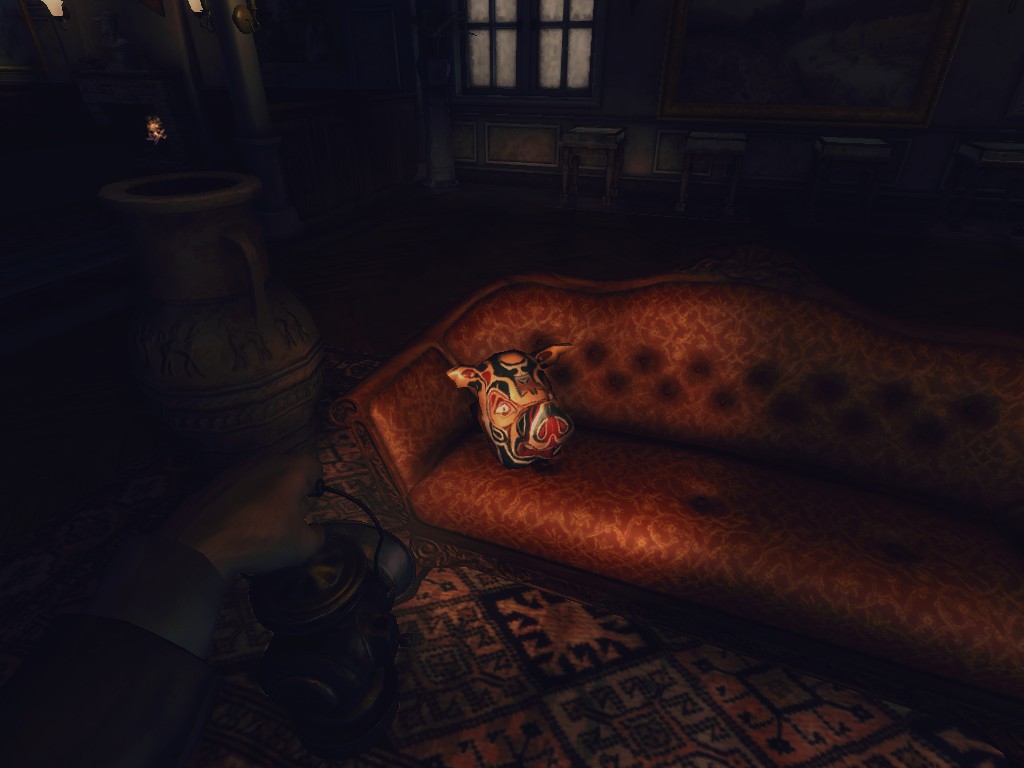
Graphics
The rooms themselves and the items in them were beautifully designed, but they were also kind of flat. For example, plates and silverware on the dining room table on the bottom floor of Oswald's house seemed to have no perspective or shadow.
That said, the style of the rooms, the items, and the outside are gorgeous and drive the mood in the game. The Victorian style could not be a better choice for the game’s setting, and the developers have done a good job of making sure individual items (except for the phone, I guess) fit in with the home. They are dark, creepy, and always a little “off” (specifically the green light given off by the lamps).
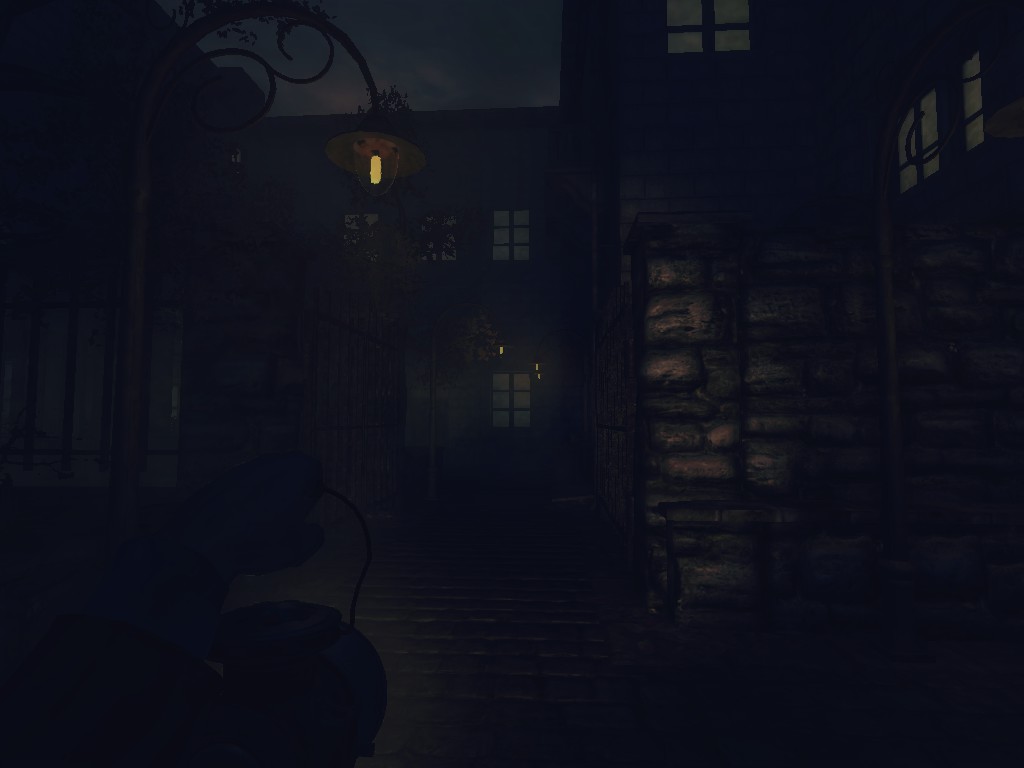
Sound Effects
I can’t finish this review without bringing up the sound effects in the game. Early on, Oswald takes you through a room with a piano in the expansive dining hall. A gentle, classical tune guides you through the room until you hit the point in the room that continues the game for you. The piano music changes to something horrible and offkey, like a frustrated player slamming their hands down on the keys. The music – although gorgeous – never lets you forget where you are or what you’re doing there. Nor do you forget you’re supposed to be scared, because you’re in a very, very bad place.
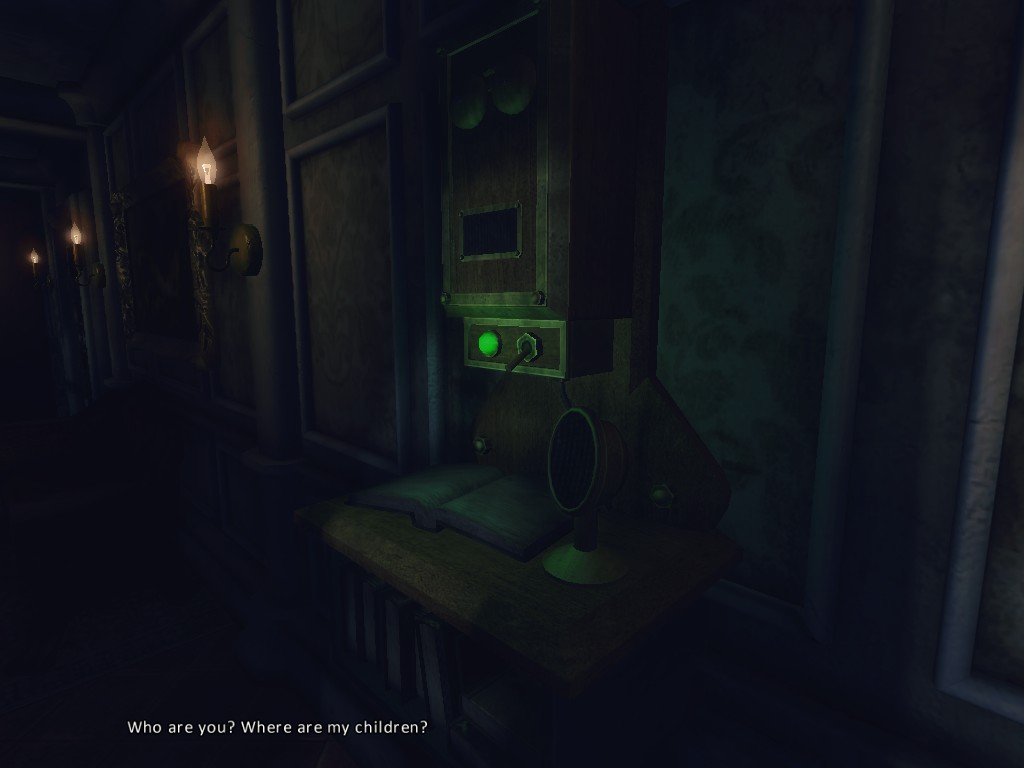
Another example is the jarring way the phone rings when someone calls Oswald to guide him. Messages appear periodically through telephones around the house to help guide you along, but they're done in such a way that it becomes the only sound you hear. If you're a fan of the horror genre in general, you'll know how chilling hearing a phone go off in silence while you're alone can really be. "Amnesia" captured this perfectly.
In this way, the music and sound effects could not possibly be better.
Conclusion
The game has been criticized by others for supposedly getting rid of everything that made the “Dark Descent” good. But I disagree. The second addition to the IP continues to be refreshing in the sea of zombie and military shooters and minimalist indie titles. For all of its flaws, the storyline is engaging enough that it pushed me to continue the game in hopes of learning what exactly happened to Oswald and his creepy, taunting children. The use of short phone messages, dizzy spells when you enter (the correct) room, and the use of background music (best of which was the classical piano piece in the big banquet hall) kept me jumpy and anxious, which is exactly how I wanted to feel considering the genre.
If you liked “The Dark Descent,” I’d be willing to bet you’d enjoy “A Machine for Pigs,” as well. The game has an excellent mood, a compelling story, and scares me pretty bad from time to time. What more can I ask from a horror game than that?
At the $20 price point, “A Machine for Pigs” is definitely playing. You can purchase it on Steam or GOG for PC or Mac.
Pros
- compelling storyline
- beautiful setting
- sound effects appropriately creepy
Cons
- deceptively linear house
- limited exploration
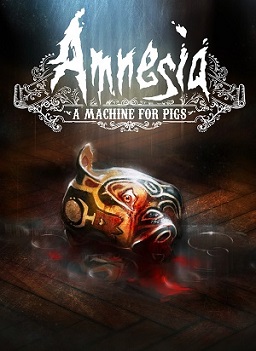
Amnesia: A Machine for Pigs 8 / 10 Read our Review »
Release: 9/10/2013 [NA]
Publisher: Frictional Games
Platforms: Linux, Mac, PC